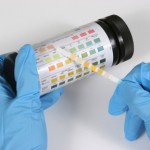 Reading the New York Times breaking news on my Kindle this afternoon, I came across a diet that was new to me, one that most of us will never go on. But for a small group of kids it can have an incredible impact.
Reading the New York Times breaking news on my Kindle this afternoon, I came across a diet that was new to me, one that most of us will never go on. But for a small group of kids it can have an incredible impact.
The story was about a nine-year-old boy who has severe epilepsy. In his case his seizures were resistant to all the major drugs that might usually have been effective. He was having them as frequently as 150 times a day.
His parents were desperate until they finally found Dr, Elizabeth Thiele at the Massachusetts General Hospital for Children. She's a specialist in pediatric neurology, an Asoociate Professor at Harvard Medical School and heads up a program for pediatric epilepsy.
One of her interests is keto as the diet is called. When children have drug-resistent seizures, keto can be effective in a significant percentage of cases.
The diet is high-fat, quite the opposite from many of those used by adults for weight loss. The kids on it start in the hospital, starving for a relatively brief period. But our bodies only have enough glucose, our primary source of energy, to last about 24 hours.
After that we burn fat reserves and our livers convert those fats into fatty acids and ketones. The latter pass into the central nervous system and become the brain's source of energy. Somehow, it's not exactly known how, that can reduce how often epileptic seizures occur.
The diet has been around for over eighty years, but when anti-seizure medications were developed and shown to e efective in most kids, keto fell by the wayside.
In the mid 1990s a Holywood producer brought it back. His son had severe epilepsy and drugs weren't helping. Keto did and the producer started a foundation to promote the use of the diet. He got his friend Meryl Streep to star in a film called First Do No Harm and the foundation sponsored a scientific study of the diet.
Since then it's been offered by over 100 hospitals for kids with drug-resistant epilepsy and two randomized, controlled studies showed it can be effective.
The boy in the article eats four times as much fat as protein or carbohydates. He's on a tightly controlled program and even his snack are calcualted. One of those snacks included two slices of bacon, seven macadamia nuts and less than one eighth of an apple. His urine would be checked for ketones as in the slide.
There are diets to lose weight and gain health; there are also diets to help with specific medical problems. I'll never try keto and hopefully, like many kids, the boy in the article will outgrow his need for it. For now it's been an wonderful asset for his health.
